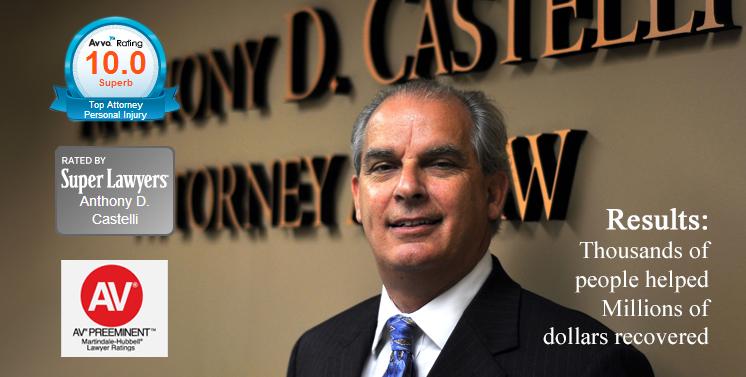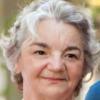Posted: October 29, 2012
A medical negligence case in Ohio resulted in a verdict for an injured young boy against a doctor. What was surprising was that neither side argued the basis of the jury's verdict. I know both lawyers well and they are super lawyers. But sometimes the jury sees things differently and makes their decision based on facts that neither attorney argued. As long as there is evidence to support the jury's theory of the case then the verdict should stand.
The facts of the case are critically important . So read them carefully.
On March 22, 2002, Kyle Smith, who was then nine years old, was playing a game with two other children at the home of a family friend. The children were holding hands and spinning around to see who would fall first.Kyle fell and hit the left side of his head against a coffee table. Jesse Smith was in the next room and heard Kyle hit the coffee table so hard that he could hear the glass in the table rattle. Smith took Kyle home and told Longbottom what had happened. After Kyle vomited and began to experience jaw pain, his parents took him to the emergency room at Mercy Hospital Clermont. While they were waiting to see a physician, an emergency room nurse, Diane Kruse, R.N., gave Kyle's parents a pamphlet on head injury that stated any head injury should be considered serious, irrespective of whether the person was rendered unconscious thereby, and that it was most important that the injured person be watched closely for the first 24 hours. The pamphlet stated that a responsible person must stay in the room with the patient and watch for a list of symptoms, including whether the patient is mentally confused, cannot be awakened from sleep, is unusually drowsy or vomits persistently, or the patient's pupils are of unequal size. The pamphlet further stated that if the patient cannot be awakened, then the person watching the patient was to call 911 and have the patient returned to the emergency room. Nurse Kruse later testified that it was her usual practice to explain the pamphlet to the parents of a child who suffered a head injury but to defer to the physician the final determination as to whether the instructions in the pamphlet were indicated for any given patient. Kyle was seen by Dr. Huber, who performed a neurological exam on Kyle and found the results to be normal. He sutured the wound on Kyle's ear, gave him some medicine to prevent infection, and discharged him. He chose not to order a CT scan for Kyle because he did not believe one was necessary. Kyle's parents later testified that Dr. Huber told them that they did not need to worry about the instructions in the head injury pamphlet because Kyle's head injury was "not typical" and that they should just let him "sleep it off." Dr. Huber disputed this, testifying that his standard practice was to tell the parents of patients like Kyle to follow the instructions in the head injury pamphlet and that he had done so on this occasion. Kyle and his parents returned home from the emergency room sometime around midnight. Kyle threw up just a little bit, gagged a few times, and had the dry heaves. Longbottom made a bed for Kyle on the couch so that she could sleep next to him. Kyle went to sleep around 12:20 a.m. Longbottom heard Kyle talking in his sleep at about 2:00 a.m. and then fell asleep herself around 2:00 a.m. or 2:30 a.m. Around 5:00 a.m., Longbottom awoke and noticed that Kyle had vomited, and that he was choking and gasping for air. Longbottom screamed for Smith, who called 911. Just before the police and ambulance arrived, Smith told the 911 dispatcher that when he and Longbottom had asked Dr. Huber at the emergency room if they should wake Kyle every two hours, Dr. Huber told them "no, it won't be a problem." Kyle was air-cared to Cincinnati Children's Hospital. Upon his arrival, he was found to be near death. A CT scan of his head revealed a massive epidural hematoma causing a midline shift of his brain and brain herniation. Dr. Kerry Crone performed emergency surgery on Kyle to remove the hematoma. Dr. Crone told Kyle's parents that he was not sure if Kyle would live. After spending several days in the hospital's ICU, Kyle survived. He then spent several weeks in the hospital relearning such tasks as swallowing, eating, communicating and walking. As a result of the incident, Kyle sustained permanent injury to his brain and now walks with an altered gait. The matter was tried to a jury over nine days in 2010. Kyle and his parents argued that Dr. Huber was negligent in failing to order a CT scan for Kyle when his parents brought him to the emergency room at Mercy Hospital and that this failure proximately caused Kyle's injuries. Both sides presented expert testimony in support of their respective positions on this issue. Another issue raised at trial was whether Dr. Huber advised Kyle's parents to follow the instructions in the head injury pamphlet, with Kyle's parents and Dr. Huber providing conflicting testimony on the matter as set forth above. Dr. Huber acknowledged during his testimony that if he actually did tell Kyle's parents that they did not need to follow the instructions in the head injury pamphlet—an assertion that Dr. Huber denied—then such advice would have fallen below the standard of care. The jury returned a verdict in favor of Kyle and his parents for $2,412,899 after finding that Dr. Huber had been negligent in the care and treatment of Kyle and that Dr. Huber's negligence directly and proximately caused Kyle's injuries. In response to an interrogatory asking them to state in what respects Dr. Huber was negligent, the jury answered, "Based on the evidence, we believe, Dr. Gary S. Huber did not instruct the parents about the possibility of significant head injury or how to observe and monitor Kyle for such injuries." (Read full case)
The Real Defense Here Is The Doctor Blew It But You Can Not Prove It Made a Difference
A close reading of the case discloses the classical defense that, " even if I was negligent you did not prove it made any difference in the outcome". In legal parlance you did not show my conduct was a proximate cause. The Court reviewed the evidence to see if proper instructions on monitoring the child would have caused the parents to bring the child back to the hospital due to worsening symptoms in time for surgery that would have prevented the brain herniation. Even though no expert directly stated that it would have made a difference, the parents were able to show underlying facts that lay people could understand that tended to make it more likely than not, that the parents would have realized the child was worsening and brought him back to the hospital in time for the doctor to do the surgery. Certainly the family should be aided by the presumption in failure to warn cases that had a proper warning been given it would have been followed. ftp://www.ca6.uscourts.gov/opinions.htm/00a0292p-06.htm
But Was The Time Frame a Problem
He was discharged from the hospital at 10:40. At midnight when the parents got him home the boy threw up a little , gagged a few times and had the dry heaves. If they had been instructed that these were symptoms of progression and to get him back to the hospital he could have been back there by 1:am and surgery commenced. But instead the parents fell asleep and did not attempt to wake him every two hours. So when mother awoke at 5 am she saw her child had vomited was gasping for air and was in trouble so she got the child air carried back to the hospital for surgery. The surgeon said it was likely that the herniation occurred after the child left the hospital the first time and before they got him back to the hospital , at least prior to the time he was air carried back to the hospital. So there was a window of 5 hours when the herniation occurred. Given the fact that the symptoms of severe brain injury are progressive and that Kyle was responding at 12 am and the mother was still up at 2am and nothing further untoward happened one could infer the herniation occurred sometime after 2 am. If the parents had not been lulled to sleep by the inadequate discharge instruction they could have had the child back at the hospital by 1am, surgey performed and the herniation prevented. Since the experts testified to underlying facts and opinions the jury should be at liberty to infer from their common experience that this injury would likely been prevented. I mean in a criminal case they find people guilty all the time without a body or witness to the accident or expert that says the defendant was the killer. Why should a civil case be any different especially where the burden of proof is substantially less. For another take on this case (that Mike Lyon defense attorney probably loves) check out the blog post by esteemed Professor and trial lawyer Ron Miller. http://www.marylandinjurylawyerblog.com/2012/10/can_a_jury_make_up_their_own_t.html


